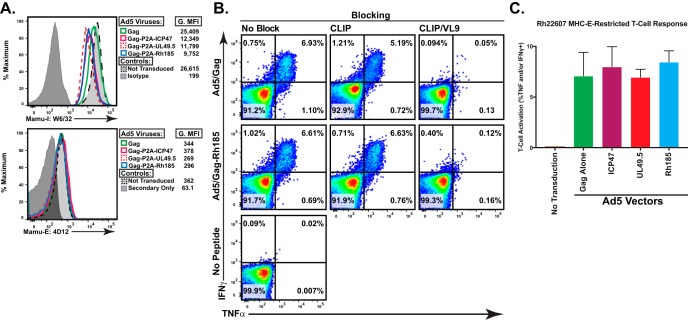FIG 3.
TAP inhibition does not reduce antigen recognition by MHC-E-restricted T cells. (A) Surface MHC-I and MHC-E levels on the autologous Ad5 transduced BLCL used as effectors to test the impact of TAP inhibition on MHC-E-restricted CD8+ T cell recognition. G.MFI, geometric mean fluorescence intensity. (B) Representative ICS data of CD8+ T cells from strain 68-1 RhCMV/Gag-vaccinated animal Rh22607 in response to coincubation with autologous BLCL transduced with the Ad5 vector as indicated on the y axis. To confirm that responses were indeed MHC-E restricted and not MHC-II restricted, the ICS was performed in the presence of saturating exogenous CLIP or VL9 peptide as indicated. (C) Compiled data of three separate ICS experiments utilizing animal Rh22607 done with saturating exogenous CLIP peptide to specifically examine MHC-E-restricted responses (P = 0.48).

